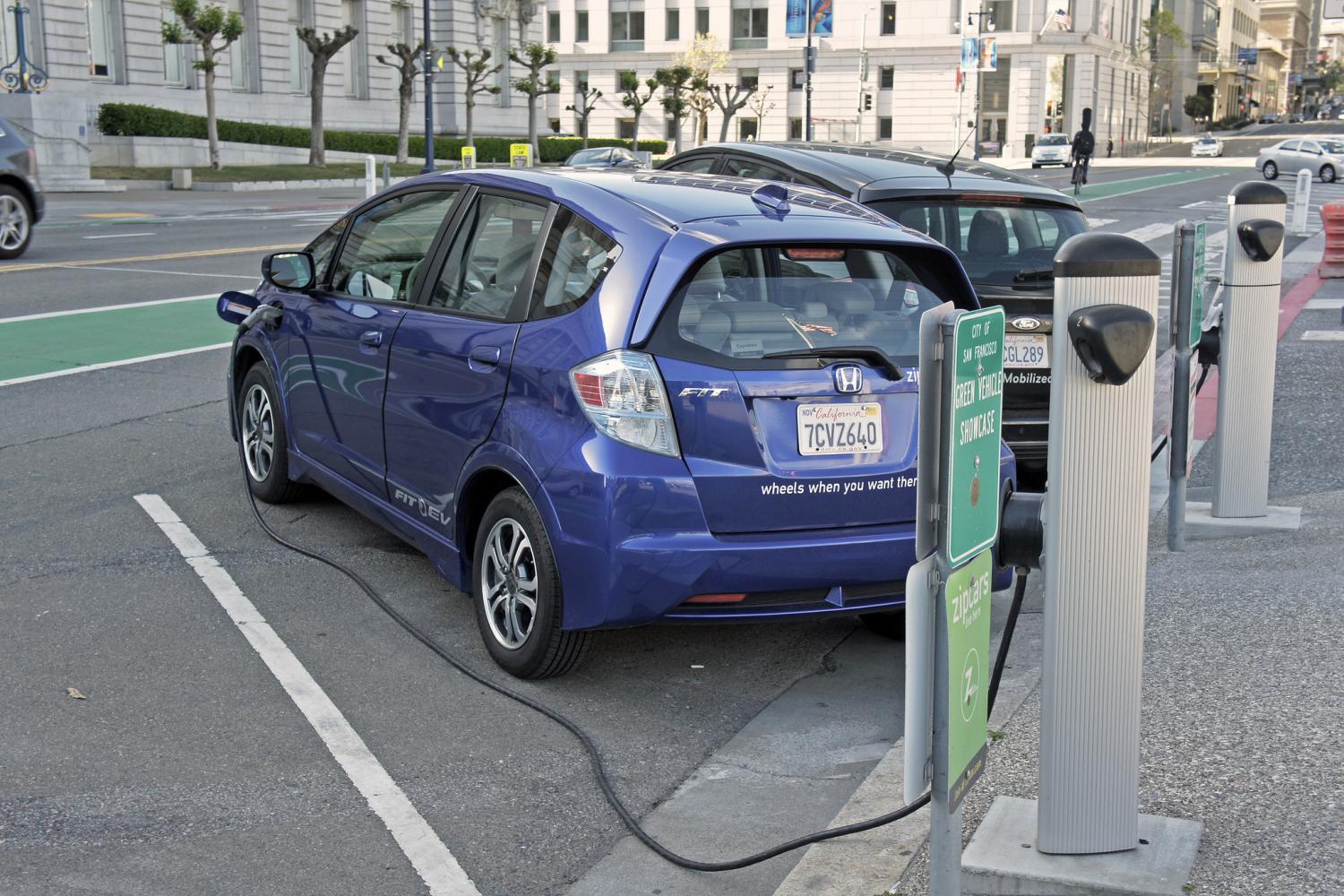
A new report suggests that the integration of electric vehicles into global corporate fleets and procurement policies is scaling up at a rapid pace.
Time and again, we see businesses playing leading roles in the move to a more sustainable economy. Whether it's to compensate for governmental inaction (particularly here in the U.S.) or responding to consumer and shareholder demands in an increasingly transparent society, or just because they really care, the trend is clear.
First there was RE100, where companies committed to obtaining 100 percent of their power from renewable sources. Then came EV100, which is similarly committed to encouraging companies to accelerate their transition to electric vehicles (EVs). Both of these are initiatives of The Climate Group. Clearly, the combination of the two, an electric vehicle fleet powered entirely by renewable electricity could be among the best possible outcomes.
Are these efforts showing results? According to RE100, this initiative now has 162 companies that have pledged to move towards fully renewable energy supply for all of their operations. Given that fully two-thirds of the world's electricity is consumed by industrial and commercial users, this is a highly significant development.
As for EV100, a new report entitled, "Business Driving Demand for Electric Vehicles," just came out, looking at progress towards its goal of "a rapid transition to an electrified global vehicle fleet."
The following are some highlights from that report:
- At the end of the first year (September 2018), the 23 member companies, with a combined annual revenue of $477 billion, committed to purchasing 145,000 electric vehicles by 2030.
- Those purchases together will represent 7.3 million US tons of CO2 saved.
- To date, 10,000 vehicles have been switched.
- A combined 632,000 employees will have access to charging infrastructure.
- Since the report, an additional 31 companies have joined adding 70,000 more EV commitments.
- In addition, LeasePlan has committed to electrifying its entire fleet of 1.8 million vehicles, bringing the total commitment to over 2 million.
The commitments that these companies are making consist of one or more of the following:
- EV integration into directly controlled (owned/leased) fleets.
- EVs in service contracts (e.g. daily rental, contracted taxi providers, car sharing).
- Supporting EV uptake by staff (charging infrastructure, incentive programs).
- Supporting EV uptake by customers (charging infrastructure, customer engagement).
Specifically, in the case of directly controlled fleets, 100 percent of vehicles weighing up to 7,000 pounds must be converted to EV, while at least half of the larger (7,000-15,000 pound) vehicles must be electric. Logistics companies must commit to fully utilize electric vehicles for the last delivery mile.
Geographic distribution of members is presently concentrated in Europe, which dominates in terms of committed vehicles and charging sites. However, looking at individual countries and their vehicle commitments, the U.S. is third with 8,740, behind Germany with 52,786 and France with 28,763.
Why do companies say they are making the move at this point? While financial savings potential is the least-cited reason among the top five, with only around 20 percent calling it "very significant" compared to 79 percent saying the same thing about reducing greenhouse gas emissions, Ingka Group (formerly IKEA) says that making no changes to its fleet would be more expensive than making the transition to electric. They are moving to EVs because it "future-proofs its operations and lowers business risk from air quality legislation and zero emission zones, which are increasingly restricting access to city centers for polluting vehicles." If they can’t deliver their products, they can’t sell them.
How do these companies plan to meet their commitments? Ingka plans to achieve its goal with a combination of electric delivery trucks and electric cargo bikes. PG&E is pioneering the use of hybrid-electric bucket trucks and the Chinese tech company Baidu is starting to rollout self-driving electric buses. Other companies, such as Metro AG and Unilever, are looking at their travel service providers such as taxis and car rental companies, building these specifications into their corporate travel policy.
The companies with the largest vehicle commitments to date are DHL (66,390), Électricité de France (EDF) (31,303) and Unilever (13,336).
But among companies, LeasePlan stands alone. It has pledged to not only transition its own employee fleet to all-electric by 2021, but by also targeting net zero emissions from its entire 1.8 million vehicle customer fleet by 2030. As a leasing company, it wants to provide the cars people want to drive. Plus, LeasePlan is responding to the actions that companies like Metro AG and Unilever are taking today, so that they can respond to the anticipated requests that will be expected. Says CEO Tex Gunning, "think big, start small and go electric." They foresee a 40-60 percent growth rate for EVs in the coming years.
The market is shifting. VW has already exiting the combustion vehicle market. The report's authors expect others to follow with a complete shift by 2030.
Image credit: MarioRdo59/Flickr

RP Siegel (1952-2021), was an author and inventor who shined a powerful light on numerous environmental and technological topics. His work appeared in TriplePundit, GreenBiz, Justmeans, CSRWire, Sustainable Brands, Grist, Strategy+Business, Mechanical Engineering, Design News, PolicyInnovations, Social Earth, Environmental Science, 3BL Media, ThomasNet, Huffington Post, Eniday, and engineering.com among others . He was the co-author, with Roger Saillant, of Vapor Trails, an adventure novel that shows climate change from a human perspective. RP was a professional engineer - a prolific inventor with 53 patents and President of Rain Mountain LLC a an independent product development group. RP was the winner of the 2015 Abu Dhabi Sustainability Week blogging competition. RP passed away on September 30, 2021. We here at TriplePundit will always be grateful for his insight, wit and hard work.














